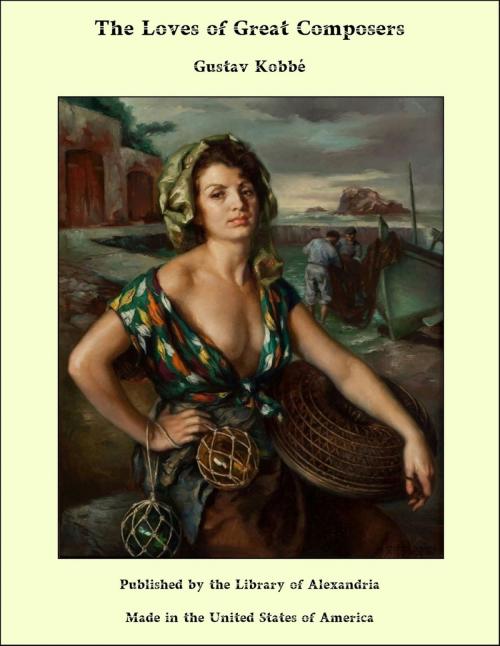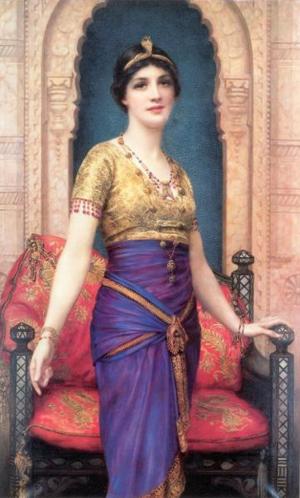The Loves of Great Composers
Nonfiction, Religion & Spirituality, New Age, History, Fiction & Literature| Author: | Gustav Kobbé | ISBN: | 9781465543509 |
| Publisher: | Library of Alexandria | Publication: | March 8, 2015 |
| Imprint: | Language: | English |
| Author: | Gustav Kobbé |
| ISBN: | 9781465543509 |
| Publisher: | Library of Alexandria |
| Publication: | March 8, 2015 |
| Imprint: | |
| Language: | English |
Mozart and His Constance Nearly eight years after Mozart's death his widow, in response to a request from a famous publishing house for relics of the composer, sent, among other Mozartiana, a packet of letters written to her by her husband. In transmitting these she wrote: "Especially characteristic is his great love for me, which breathes through all the letters. Is it not true—those from the last year of his life are just as tender as those written during the first year of our marriage?" She added that she would like to have this fact especially mentioned "to his honor" in any biography in which the data she sent were to be used. This request was not prompted by vanity, but by a just pride in the love her husband had borne her and which she still cherished. The love of his Constance was the solace of Mozart's life. The wonder-child, born in Salzburg in 1756, and taken by his father from court to court, where he and his sister played to admiring audiences, did not, like so many wonder-children, fade from public view, but with manhood fulfilled the promise of his early years and became one of the world's great masters of music. But his genius was not appreciated until too late. The world of to-day sees in Mozart the type of the brilliant, careless Bohemian, whom it loves to associate with art, and long since has taken him to its heart. But the world of his own day, when he asked for bread, offered him a stone. Mozart died young; he was only thirty-five. His sufferings were crowded into a few years, but throughout these years there stood by his side one whose love soothed his trials and brightened his life,—the Constance whom he adored. What she wrote to the publishers was strictly true. His last letters to her breathed a love as fervent as the first
Mozart and His Constance Nearly eight years after Mozart's death his widow, in response to a request from a famous publishing house for relics of the composer, sent, among other Mozartiana, a packet of letters written to her by her husband. In transmitting these she wrote: "Especially characteristic is his great love for me, which breathes through all the letters. Is it not true—those from the last year of his life are just as tender as those written during the first year of our marriage?" She added that she would like to have this fact especially mentioned "to his honor" in any biography in which the data she sent were to be used. This request was not prompted by vanity, but by a just pride in the love her husband had borne her and which she still cherished. The love of his Constance was the solace of Mozart's life. The wonder-child, born in Salzburg in 1756, and taken by his father from court to court, where he and his sister played to admiring audiences, did not, like so many wonder-children, fade from public view, but with manhood fulfilled the promise of his early years and became one of the world's great masters of music. But his genius was not appreciated until too late. The world of to-day sees in Mozart the type of the brilliant, careless Bohemian, whom it loves to associate with art, and long since has taken him to its heart. But the world of his own day, when he asked for bread, offered him a stone. Mozart died young; he was only thirty-five. His sufferings were crowded into a few years, but throughout these years there stood by his side one whose love soothed his trials and brightened his life,—the Constance whom he adored. What she wrote to the publishers was strictly true. His last letters to her breathed a love as fervent as the first















